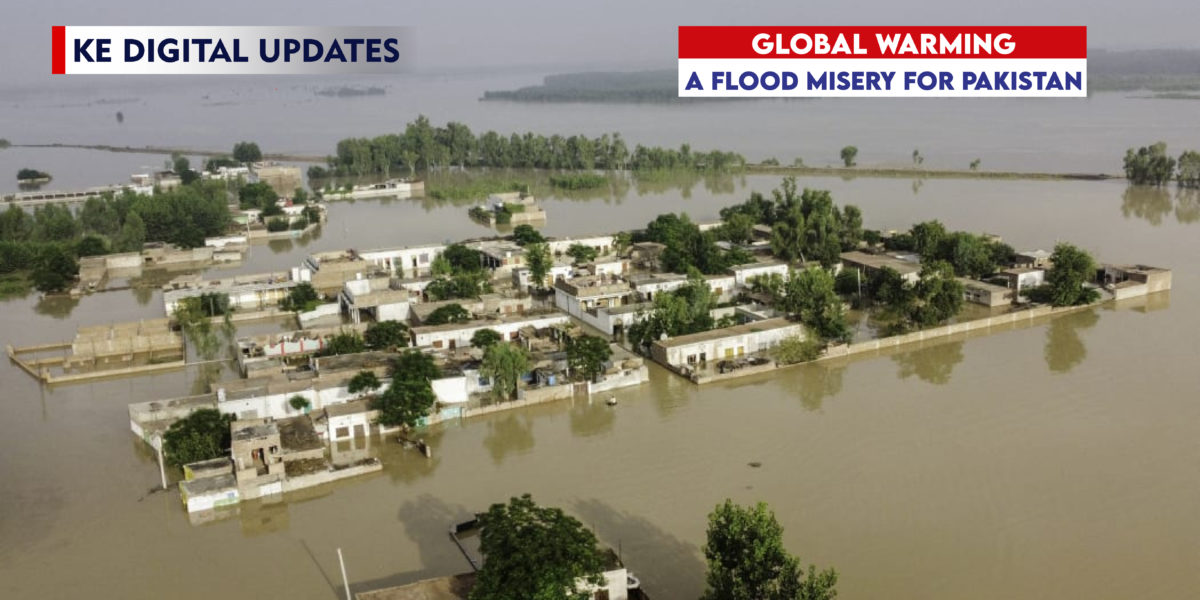The flood is a big disaster in the country that is impacting lives and assets adversely. National Disaster Management Authority (NDMA) reported that 1,033 people dead, 1,343 injured, 452,000 houses partially destroyed, 218,000 homes destroyed, 794,000 livestock lost, and 2m hectare crops were affected by floods. It is also affecting the current account and the overall economy. The current account deficit (CAD) is expected to be up to $ 5 billion.
Unprecedented rains in South Punjab, Baluchistan, and Sindh have been responsible for floods in Pakistan; loss in Sindh is high. Pakistan Navy personnel are trying to rescue the affectless in the coastal and creek area, i.e., Qamber, Shahdad Kot, Sukkur, Mirpur Khas, Sanghar, Larkana, and Bakrani. They saved a complete village Goth Muhammad Hassan Chandio, in district Dadu, by shifting the people to a safe place by using a helicopter.
Millions of hectares of farmland have been destroyed by floods. The cotton import will increase and decline in exports of rice. Wheat sowing will be affected in coming years as land will take time to dry and to be ready for cultivation. The use of fertilizers will increase, which will raise the cost of production. The Indus River is at risk due to floods coming from the tributaries.
Prime Minister Shahbaz Sharif had a telephonic conversation with Turkish President Tayyip Erdogan and shared the current disaster situation. Turkey and UAE provided relief support for flood victims on Sunday based on food items, medicines, tents, and other essentials.
Floods in Khyber Pakhtunkhwa (KPK) have raised the water level in the Kabul River and destroyed a bridge that cut off the access of a few districts to the road. Floods destroyed the public infrastructure in Swat, i.e., 15 bridges, 130 km of roads, and a telecommunication system.
Damage to infrastructure will impact two ways to Pakistan, i.e., one is the loss of lives and assets; the other is the damage to infrastructure that has slowed down business activities in other related areas.
Planning Minister Ahsan Iqbal said that Pakistan needs $10 billion to cope with the disaster. The need for more steel products like rebar, beams, and concrete material to build houses and public infrastructure required more funds.
Developed countries are responsible for global warming and climate change, resulting in unprecedented rainfalls. Pakistan contributes a single percentage of carbon dioxide emissions globally, but it has to face more effects of global warming, which scientists have warned about for decades. International support received by Pakistan is insufficient; developed nations should come forward to help Pakistan in this disaster, as Pakistan is already facing an economic crisis.


